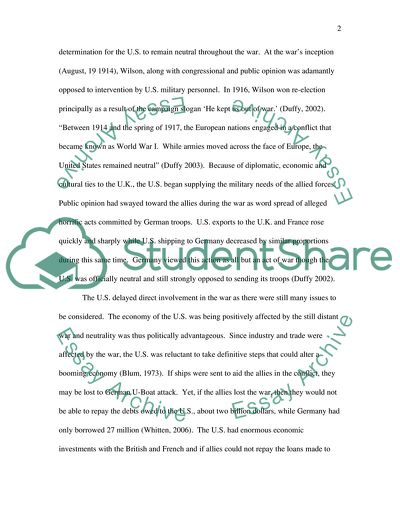Cite this document
(Motives that Forced the US Join World War Essay, n.d.)
Motives that Forced the US Join World War Essay. https://studentshare.org/history/1703403-why-did-the-us-join-world-war-1
Motives that Forced the US Join World War Essay. https://studentshare.org/history/1703403-why-did-the-us-join-world-war-1
(Motives That Forced the US Join World War Essay)
Motives That Forced the US Join World War Essay. https://studentshare.org/history/1703403-why-did-the-us-join-world-war-1.
Motives That Forced the US Join World War Essay. https://studentshare.org/history/1703403-why-did-the-us-join-world-war-1.
“Motives That Forced the US Join World War Essay”. https://studentshare.org/history/1703403-why-did-the-us-join-world-war-1.


